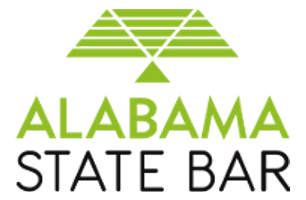How a co-debtor or cosigner will be affected by the filing of a Chapter 7 bankruptcy is a common concern.
What is a co-signer?
A co-signer is a person who signs an agreement to guarantee a loan for someone else. The co-signer is a co-borrower, in other words.
When a co-signer signs a credit application along with the primary borrower and that borrower defaults on the loan, the lending creditor has the equal right to purse the borrower and co-borrower for collection.
In prospective Chapter 7 bankruptcy clients, this has generally occurred where a person’s credit rating has not been sufficiently positive to allow for the purchase of a home or car without assistance from a spouse, parent, or other family member. A co-signer has been required to obtain the loan.
Now, that loan has become a burden. The borrower wants to step out from underneath the obligation with a Chapter 7 bankruptcy.
The question for that borrower becomes: “What happens to my co-signer?”
Do I Need To Tell My Co-Signer about My Bankruptcy?
First, do you need to even tell your co-signer that you’re filing bankruptcy?
The practical reality is that your co-signer will learn of the bankruptcy filing whether you tell them or not.
All creditors and co-signers are required under penalty of perjury to be disclosed—with name and accurate mailing address—in the Chapter 7 bankruptcy petition.
After you file your bankruptcy, the Bankruptcy Court will mail a notice to every party listed in the petition, including co-borrowers.
Whether or not to give the co-signer some advance warning is a personal question.
If you have a poor relationship with that person, it is possible that you would not discuss the matter ahead of time. It is even possible that you simply don’t want that person or other family members or friends trying to talk you out of your decision to file for Chapter 7 bankruptcy.
However, if you do have a regular and solid relationship, not giving a heads up is likely going to make the next family dinner a little unpleasant.
The Chapter Bankruptcy Discharge & Co-Signers
A Chapter 7 bankruptcy is designed to provide a fresh start to the debtor filing it.
It is the most powerful means of escaping debt in American law—and can be most cost-effective, so long as you don’t own too many valuable assets. (Such assets may be subject to liquidation in a Chapter 7.)
When you successfully complete your Chapter 7 proceeding, you will receive a discharge of your debt from the US Bankruptcy Court.
You will be permanently free of any obligation to pay anything further to the creditors whose debts have been discharged.
Merely filing the Chapter 7 bankruptcy will automatically stay nearly any collection attempt by these creditors even prior to your receipt of the final discharge.
However, none of this is true for your co-signers and co-borrowers.
Your co-signer will be subject to collections during your Chapter 7 case, and your co-signer will be left holding the liability for the balance of the full balance of the debt remaining after your discharge.
Not just 50% of it.
Your co-signer’s credit will suffer because the account is included in your bankruptcy.
The creditor will be able to call and write them to demand payment.
The creditor will be able to sue them for collections, obtain a judgment, and execute that judgment with a garnishment, property seizure, or by placing a judgment lien on any real or personal property.
How Can Co-Signers Be Protected?
Despite all of this, you should not let concern for a co-signer prevent you from having a conversation with an experienced Alabama bankruptcy attorney if you are suffering financial hardship.
It isn’t all doom and gloom.
There are options for you and your co-debtor. The first step in exploring those options is to meet with a lawyer to discuss them.
First, there may be, depending on the nature of the co-signed debt, little to no negative impact of your Chapter 7 on the co-debtor.
For example, if the co-signed debt is a car loan for a vehicle that you have been making payments on, have kept current on, intend to continue paying through and after your Chapter 7, and sign a reaffirmation agreement.
You may choose to sign something called a reaffirmation agreement for a vehicle loan in your Chapter 7 process.
A reaffirmation agreement will create a debt that survives bankruptcy.
Other options include a conversation with your co-signer about a payment agreement post-discharge, or the voluntary payment of the discharged debt (if the creditor will allow it) after your bankruptcy.
A further option worth discussing with your bankruptcy attorney is the filing of a Chapter 13 bankruptcy rather than a Chapter 7 if protection from immediate collection from your co-signer is of primary importance to you.
In a Chapter 13 bankruptcy, debts are at least partially paid over a 3-5-year payment process under the supervision of the Bankruptcy Court—and co-debtors are protected by the automatic stay with some limitations.
The co-debtor stay in a Chapter 13 is limited to consumer debts. The Bankruptcy Code defines consumer debts as a debt incurred by an individual primarily for a personal, family, or household purpose.
Chapter 13 will be discussed in more detail in a further article on this site.
Co-Signers and Chapter 7 Bankruptcy: The Big Takeaway
The big takeaway about co-signers and Chapter 7 is that acknowledging a co-signer in the process is mandatory.
You do not have the option to simply “keep that debt out of it,” or that co-signer.
There are options for protecting a co-debtor, however, but they need to be discussed with an experienced Alabama bankruptcy attorney.
Contact us if you are considering filing for bankruptcy and are concerned about its effect on a co-signer.





